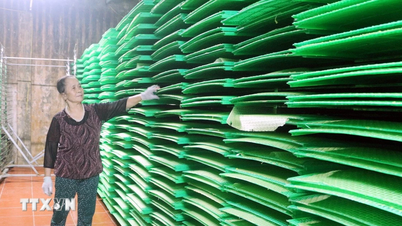Ads for addictive drugs are still being posted on the world's largest social networking platform, Facebook, and can be delivered to buyers through the postal service, according to a Canadian press investigation.
With just one click, buyers can connect to online stores selling cocaine, cannabis, ketamine and other addictive substances, ordering drugs by bank transfer.
According to a VNA reporter in Ottawa, Meta - the tech giant that owns Facebook and Instagram - has for many years maintained that its advertising standards prohibit ads that promote the sale or use of drugs, including recreational drugs. However, they continue to flood the news feeds of social media users in Canada, distinguished as paid ads with a small "Sponsored" label, generating revenue for Meta from drug dealers who use the company's advertising algorithms to reach new customers.
According to the investigation, buying drugs through Facebook ads is no different than buying on Amazon. After sending money via wire transfer, cocaine from an online drug store is sent to the buyer's home address within a few business days via Canada Post.
Canada Post said last year it intercepted drug-laden parcels worth more than 9 million Canadian dollars ($6.42 million) and turned them over to police.
Meanwhile, the Royal Canadian Mounted Police (RCMP) said it is actively pursuing individuals and networks profiting from online drug trafficking, including through social media platforms.
RCMP said combating drug trafficking "is a top priority" and is investigating advertisements on web platforms "used by drug traffickers to conceal their identities and facilitate the distribution of their products."
Meta has long faced scrutiny over drug dealers using its platform to market drugs. As early as 2013, an investigation revealed how users on Instagram could search for drugs if they knew the right hashtag to use.
The photo-sharing platform responded by blocking some search terms and encouraging users to report the content, but the problem continues to plague Instagram and Facebook.
Last year, the Wall Street Journal reported that prosecutors in the US were investigating whether Meta’s platforms profited from drug sales. Meta reported $164 billion in revenue last year, more than 97% of which was generated through advertising.
Meta said it uses “robust measures” to detect and remove content that violates its standards, such as human review and artificial intelligence, including technology that can distinguish drug imagery.
The company also said it is working with law enforcement to improve detection of infringing content and help raise awareness about the dangers of drug abuse./.
Source: https://www.vietnamplus.vn/canh-bao-tinh-trang-mua-ban-ma-tuy-qua-quang-cao-tren-facebook-post1076200.vnp






































![[Photo] Prime Minister Pham Minh Chinh attends the annual Vietnam Business Forum](https://vphoto.vietnam.vn/thumb/1200x675/vietnam/resource/IMAGE/2025/11/10/1762780307172_dsc-1710-jpg.webp)































































![Dong Nai OCOP transformation: [Article 4] Reaching national standard products](https://vphoto.vietnam.vn/thumb/402x226/vietnam/resource/IMAGE/2025/11/11/1762825820379_4702-cac-san-pham-trai-cay-chung-nhan-ocop-nongnghiep-174649.jpeg)



![Dong Nai OCOP transition: [Article 3] Linking tourism with OCOP product consumption](https://vphoto.vietnam.vn/thumb/402x226/vietnam/resource/IMAGE/2025/11/10/1762739199309_1324-2740-7_n-162543_981.jpeg)







Comment (0)